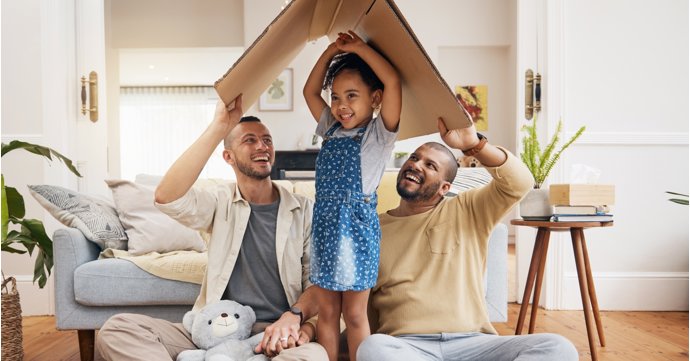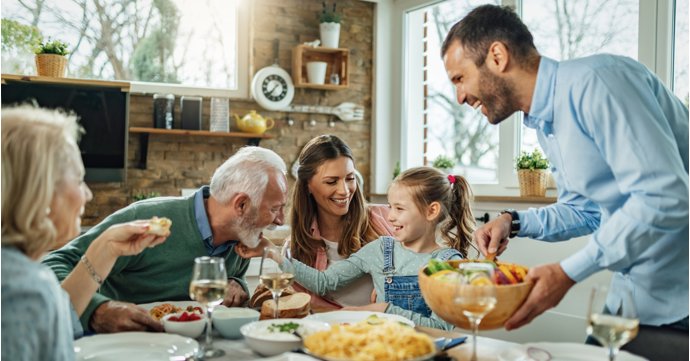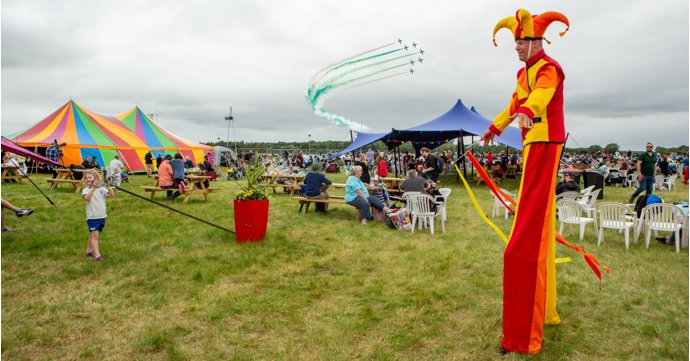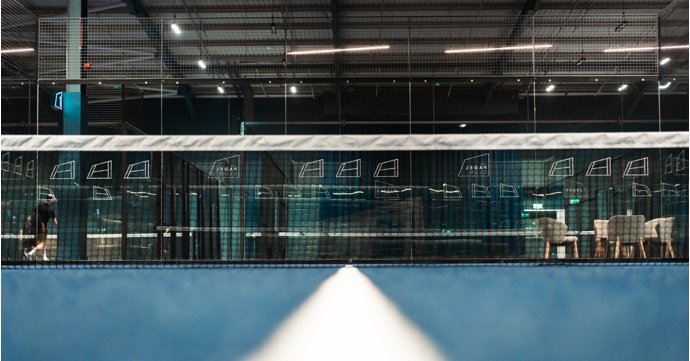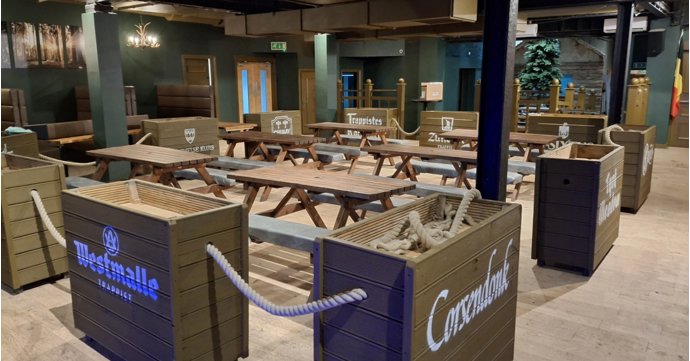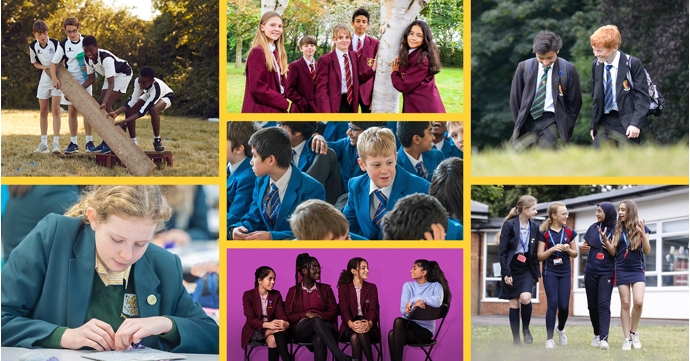Johnnie, the biological child of a family who fosters, shares his journey with Gloucestershire County Council Fostering, which began around five years ago. Initially driven by concerns about being alone once his older siblings moved out, he became a key advocate for fostering.
With his family currently hosting three foster siblings — a 10-year-old boy, a six-year-old girl, and a three-year-old boy — SoGlos caught up with Johnnie to understand the positive impact of short-term fostering on family dynamics, including learning parenting strategies and maintaining family traditions, as well as to discuss the emotional challenges of fostering, such as coping with the departure of foster children and the support mechanisms in place.
Tell me a little bit about yourselves and how long have you fostered/what inspired you to foster?
I can't remember how many years ago it was now, but I'll start with saying I'm from a family of seven. I'm the youngest. I have three brothers and one sister — love them to the death — but I think my parents found if they were to all go and move to separate counties or countries or whatnot as they got older, that it was going to be difficult for me to have no one in the house, having grown up in a large family.
I think they always had this idea of fostering, but hadn't really acted on it. I remember quite a funny story actually... I must have been maybe six, my family were having a discussion around the dinner table about fostering and I was just walking past and overheard it. I thought they were talking about fostering me, so I poked my head around the corner, scared out of my mind begging them not to foster me! And that was my earliest memory of fostering.
Then, four or five years ago, while we were in a separate country, I remember mentioning the idea in the car. My parents said: 'You know what? I think we really should act on this.' From there, we looked into it to see what it involved — and here we are now.
Do you think that fostering has changed your family dynamics?
Well, I think when we first started fostering, having
someone extra in the house was a bit of a switch. It posed a challenge because
of all the trauma they’ve gone through, but on the other hand, I think it was
also quite nice, especially as my older siblings moved out, because there was
still a bit of the happy chaos in the house.
I actually find it quite nice because it means my parents' focus of attention isn't solely on me. That can sometimes be a bit, I don't know, not intimidating — but it just takes off some pressure. And it’s also nice to have a bit of change — I have my day, my parents have their day and I think not fostering would be a bit mundane.
I think
it’s just really nice to have a lot of upbeat liveliness, like, 'Oh, what
have you done today?' 'Oh my gosh, this happened...' etc. At
their age, so much happens, and it keeps a lot of life flowing through the
house. I think that’s what it really does.
How do you typically bond with your foster
siblings?
Well, I think over the years, I’ve gotten a little better at handling the flow of them coming and going.
I remember my mum mentioning that it’s easier to stop being an older brother and start being a friend. I think from that point onwards, it boosted our relationships and how I get along with them. That really helped; she had mentioned the same thing to my older brother growing up, because we used to fight.
I started being a friend, just sitting and doing some homework with them, which is always a bit of fun; sometimes I take them out to the movies; I make loom bands with one of them; or even read them a bedtime story... I think carving out a little spare time for them and those little moments really boosts our relationships.
What strategies do you use when you feel overwhelmed by the dynamics of fostering?
We have quite a large extended family, so I’m used to the comings and goings of siblings and relatives, which I think really helps.
What I find really helpful is that the council offers us respite weekends. During this time, mum and dad will sometimes take me out for curry or drinks and we get a chance to rest. Recently, they took me out to Dunkertons, where we played some padel.
I think they’ve been really intentional about making time for me so I don’t feel alienated, whether that’s checking in on how I am or seeing how else they could help. They’ve really been on top of that.
How has growing up in a fostering environment influenced your views on family or future goals?
Having a large family, I’ve always aspired to have a bigger family myself because I know how fun it is for everyone.
I loved my childhood — before fostering, during fostering and still now — just having all those siblings to go to has influenced me to probably want a larger family.
The experience of fostering has definitely given me some insight into what it entails. Fostering has also provided me with a lot of parenting strategies for dealing with certain situations, especially since my mum has written a parenting book. I take a lot of influence from her.
Are there any family traditions you’ve created with your foster siblings?
We’ve kept our own family traditions. For example, every Friday when I was growing up, we would have pizza night. We’d sit in the living room, eat pizza, have some popcorn and chocolate, and all watch a movie. It was our way to regroup as a family when we were all together.
We’ve kept that tradition, which I love and I try to attend if I’m not doing revision. It brings back good memories and is a really nice bonding moment for our family, a way to wrap up the week.
What do you think are the most rewarding parts of fostering for your family?
I think it’s probably seeing how far they’ve come compared to when they first arrived. For example, when the three-year-old came into our care, my dad recorded around 30 tantrums in an hour.
There has been a significant improvement since then. When he came to us, his one or two words were 'get out,' which could mean a lot of things — 'get out,' 'get in,' 'get on,' 'get off,' 'get over.' But now, after about a year and a half, his speech has improved tremendously. He’s really progressed.
The habits they pick up in their own homes sometimes need to be shaped into something more positive.
For example, our nine-year-old used to eat until he was full, often choosing not the healthiest options. But I think with us, he’s learned to be better about portion control and more thoughtful, considering, 'Is this the best for now?' or 'Should I have this later as a reward?'. It’s helpful to take some of their habits and try to shape them in a more positive way.
What advice would you give to other kids who might have foster siblings?
One thing I wish I had known, but I'm glad I went through the process of it, is to not always be an older brother. Sometimes you have to step into that role and say, 'You really should be doing this,' but if your parents are the parents, it makes it so much easier for you to grow and have a relationship where they can be honest with you and where you can be a friend. I think being a friend is much better than being their brother or parent.
Overall, fostering has taught me to embrace it. Every time I’ve seen a child leave our care — like the first one we had for five or six months — it’s so difficult to watch them go because you embrace them with so much love, thinking, 'But they were doing so well! They were amazing; they were really growing...' That can be hard to watch.
It’s also tough because the house feels quieter. You think, 'Oh, there should be a baby running through the kitchen right now!' or 'There should be singing in the garden.' The shift is so sudden; it’s like, 'Whoa, they’re not part of my life anymore.' That’s the most difficult part, I’d say.
To get through that, working as a family is really helpful, looking back at the memories you made with them and all the things you learned along the way.



